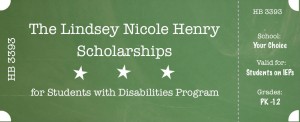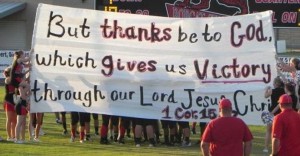Athletics are an important of an overall educational program. School athletic programs, both inter-mural and intramural offer students health and social benefits of great value. These benefits include socialization, improved teamwork and leadership skills. These benefits apply just as much to disabled student as typical students, if not more so. Unfortunately though, the United States Government Accountability Office found that students with disabilities are not being afforded an equal opportunity to participate in extracurricular athletics in public elementary and secondary schools.
Based on these findings, the GAO recommended that the Office of Civil Rights clarify and communicate school district responsibilities under Section 504 regarding the provision of extracurricular activities. In it January 25, 2013, report, OCR undertook to do exactly that.
In what’s known as a Dear Colleague Letter, OCR laid out districts basic responsibilities under Section 504 and then applied those rights to the area of extracurricular activities.
Under this law, districts may not discriminate against individuals attempting to engage in extracurricular activities so long as they are “otherwise qualified.” Essentially, this means that a district must make reasonable accommodations to allow a disabled student to participate, but they need not alter the game or the skill requirements expected. For example, modifications that would give a disabled student a fundamental advantage are not required, but modifications to allow a student to participate are.
The letter lays out several scenarios and then analyzes whether the district response in the hypothetical scenario was appropriate. In the most informative example, a high school competitive swimmer was born with only one hand. Her times are competitive but she cannot meet the requirement of performing a two-hand wall touch. She petitions the league to allow her to use a one-hand touch during interscholastic meets. Under the OCR’s analysis, the district would be required to perform an individualized analysis to determine whether the requested modification was necessary for the student’s participation, and determine whether permitting it would fundamentally alter the nature of the activity. Her, modification is necessary for the student to participate.
An appropriate analysis would determine whether the requested modification alters an essential aspect of the sport or would give the student an unfair advantage over other swimmers. The analysis does not end there though. If the district determined the modification failed either prong, it would need to assess if other modifications existed that would allow the student to participate.
The report concludes that while districts cannot offer separate services that are unnecessarily separate, districts are encouraged to work with their community and athletic associations to develop broad opportunities to include students with disabilities in all extracurricular athletic activities. When the interests and abilities of some students with disabilities cannot be as fully and effectively met by the school district’s existing extracurricular athletic program, the school district should create additional opportunities for those students with disabilities. The letter goes on to mention the creation of disability-specific team sports such as wheelchair basketball or wheelchair tennis.
If you feel that your child has been unfairly discriminated against in attempting to participate in extracurricular activities, please contact The Law Office of Gregory R. Branch for a consultation.




